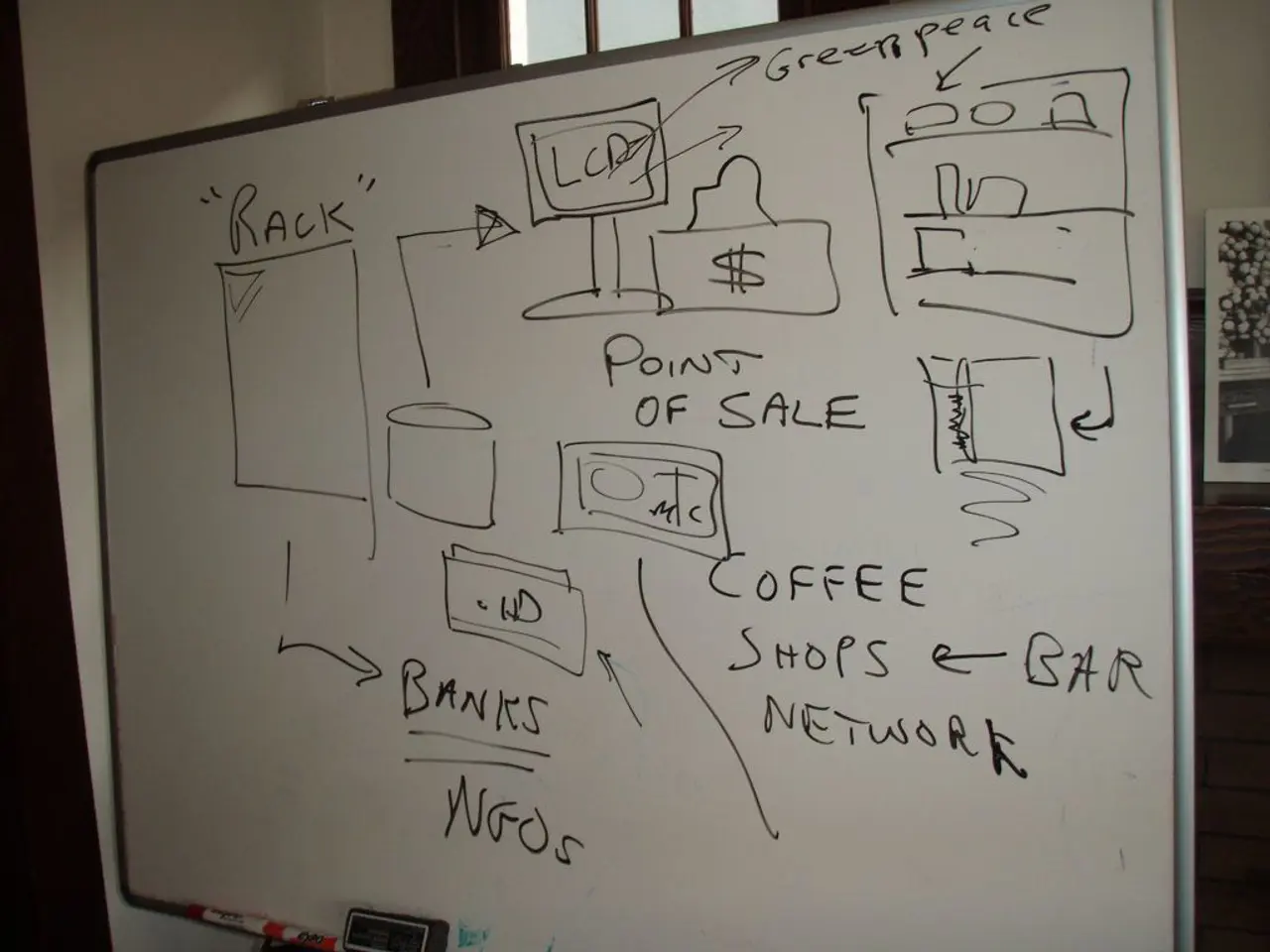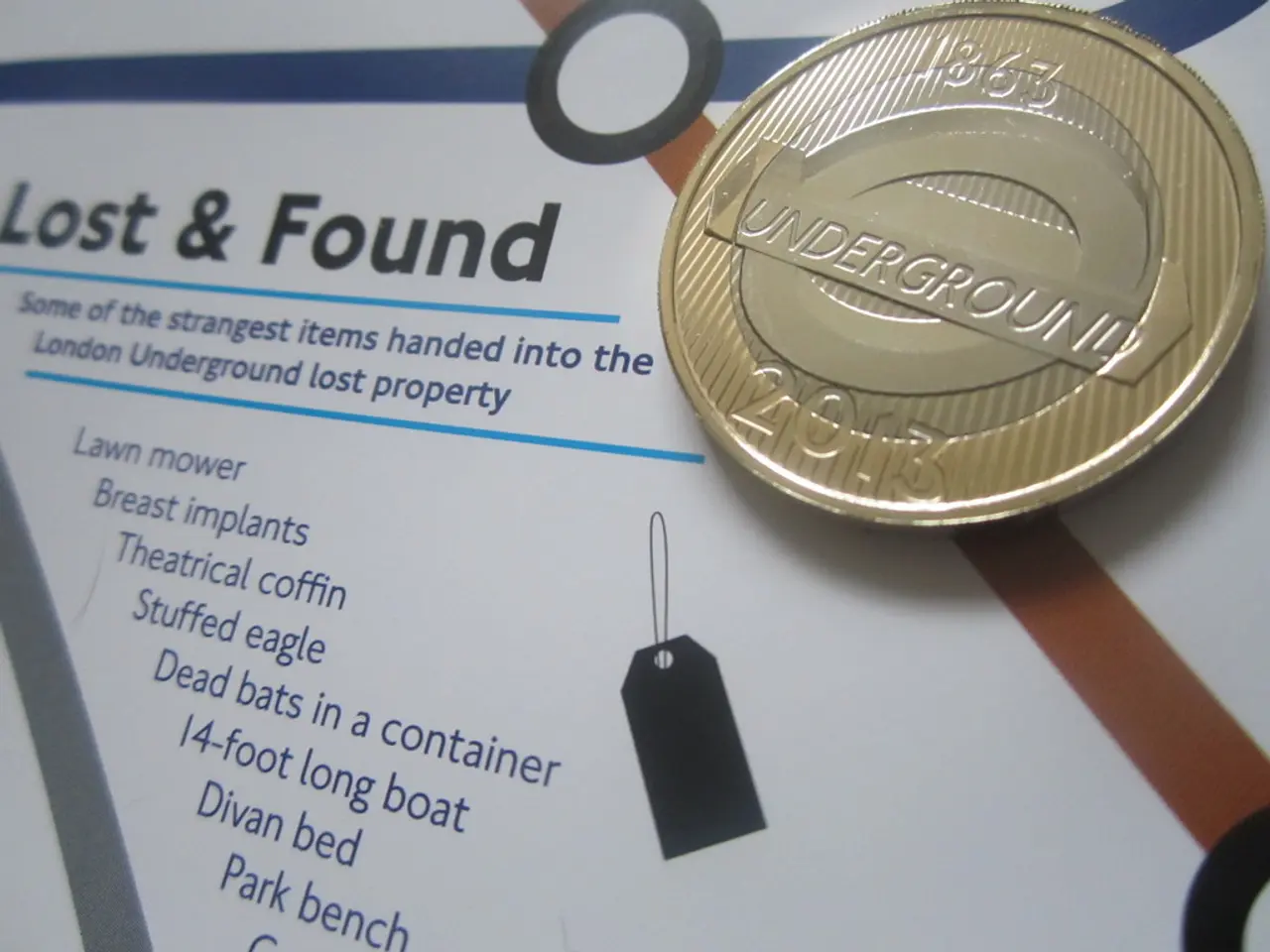Microsoft's Quantum Advancement: Revolutionary Progress or Exaggerated Claims?
In a groundbreaking announcement made on February 19, 2025, Microsoft unveiled the Majorana 1 chip, a significant advancement in the realm of quantum computing. This development, which has sparked renewed debate within the scientific community, is set to potentially revolutionise fields such as cryptography, AI, and materials science.
The Majorana 1 chip employs a new type of qubit—topological qubits—which are theoretically more resilient to external noise. These quasiparticles, which emerge under very specific conditions, are naturally robust against environmental noise, marking a transition from noisy intermediate-scale quantum (NISQ) devices to what Microsoft calls the era of *logical qubits*—stable, error-corrected qubits that can scale far more efficiently.
The chip currently houses 8 topological qubits, architected for scalability. Microsoft envisions scaling from this prototype to potentially millions of qubits without the exponential increase in complexity that limits other quantum technologies. This could fundamentally change quantum hardware design, moving quantum computing from a fragile, error-prone field to a more practical and scalable reality.
Industry experts view this as a "silent revolution" that positions quantum computing on a commercial and research-ready horizon, no longer a distant moonshot. Microsoft’s approach is bolstered by over 17 years of foundational research, and the company is integrating AI and classical high-performance computing to enhance quantum programming and accessibility.
While other tech giants like Google, IBM, and Amazon are also progressing in quantum error correction and hardware, Microsoft’s topological qubit approach with the Majorana 1 chip is seen as uniquely promising for fault-tolerance and long-term scalability.
However, not all scientists are convinced. Some have expressed skepticism about Microsoft's claims regarding the Majorana-based topological qubits, citing insufficient evidence. The peer-reviewed paper published alongside Microsoft's announcement of the Majorana 1 chip has been met with similar skepticism.
As we look towards the future, the scientific community views the Majorana 1 as a pivotal advance towards scalable, fault-tolerant quantum computers. However, ongoing research is needed to realise its full potential at scale. Further details about Microsoft's research will be presented at the American Physical Society's annual meeting in March.
Shannon Yeow, Engineering Correspondent, provides an insightful article on the current state of quantum computing and its potential future developments as part of a series, Now & Next, which focuses on current events, breakthroughs, and trends in the scientific and engineering community. The Princeton Quantum Initiative (PQI) also offers opportunities for students to engage with cutting-edge quantum research and build scalable quantum systems.
References: [1] Microsoft Research. (2025). Majorana 1: A Topological Quantum Chip. Retrieved from https://www.microsoft.com/en-us/research/blog/majorana-1-topological-quantum-chip/
[2] Yeow, S. (2025). Majorana 1: A Pivotal Leap Towards Scalable, Fault-Tolerant Quantum Computing. Retrieved from https://www.engineering.com/Now-Next/Now-Next-Majorana-1-A-Pivotal-Leap-Towards-Scalable-Fault-Tolerant-Quantum-Computing.html
[3] American Physical Society. (2025). Majorana 1: A Topological Quantum Chip. Retrieved from https://www.aps.org/meetings/2025/mar/events/407919.html
[4] Nature. (2025). Topological qubits: A promising approach for quantum computing. Retrieved from https://www.nature.com/articles/d41586-025-00015-5
The Majorana 1 chip, a topological quantum chip unveiled by Microsoft, deploys topological qubits, which are known for their resistance to external noise. This transition from noisy intermediate-scale quantum devices to logical qubits could revolutionize fields like technology and science.
Microsoft's integration of AI and classical high-performance computing aims to make quantum programming more accessible, potentially paving the way for a transition of quantum computing from a fragile, error-prone field to a more practical, scalable reality.



